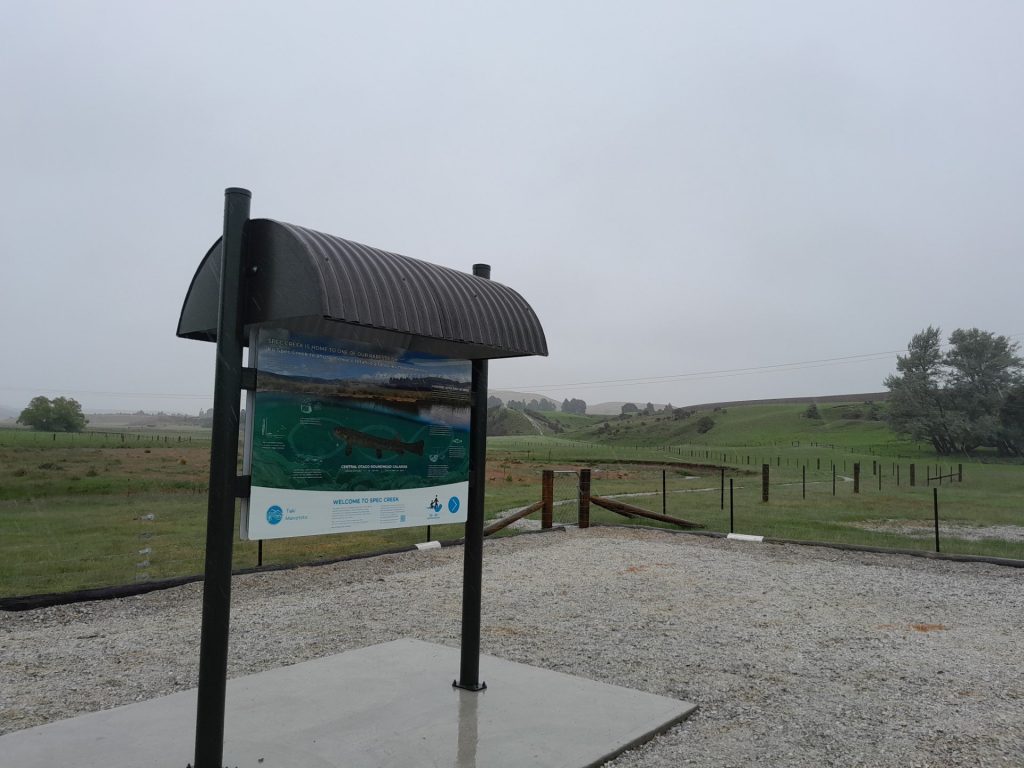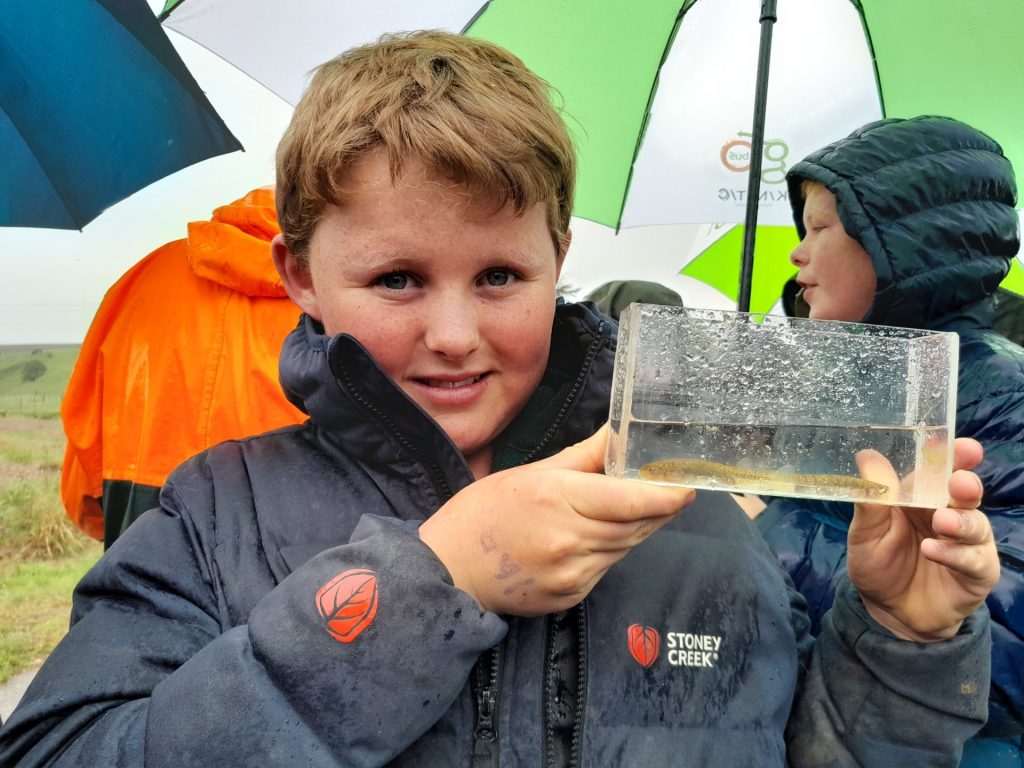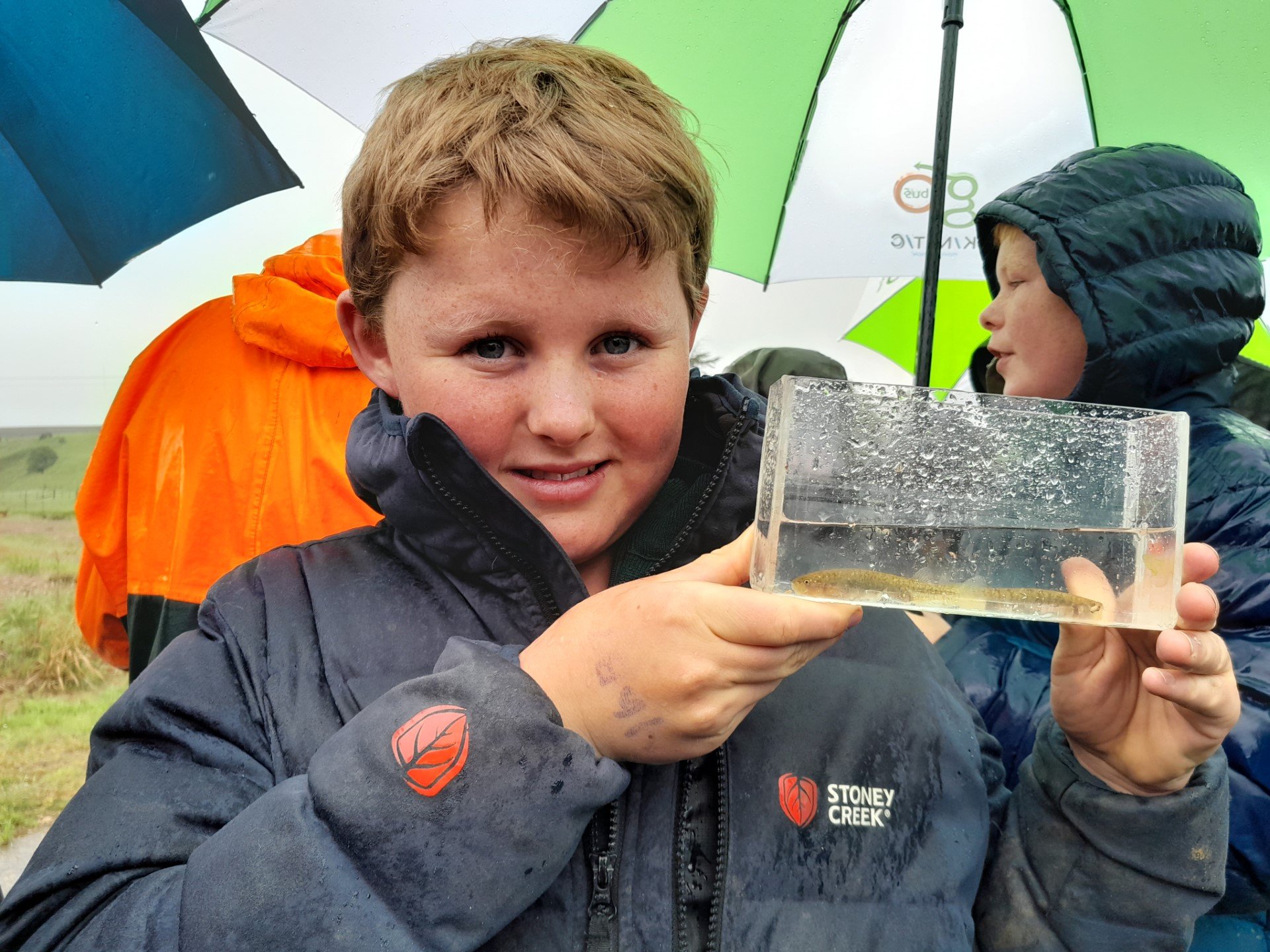New Zealand’s first private galaxiid sanctuary opened at Kyeburn last week, with an aim to educate people about the rare fish found there.
Even the driving rain could not keep people away, about 50 people attending when the Spec Creek Galaxiid Sanctuary was opened last Friday.
Spec Creek runs through the properties of local farmers Phil Smith and Hamish Mackenzie, who have fenced off the stream from stock, with help from local freshwater conservation group Tiaki Maniototo.
They have also created a carpark and information panels, as well as a public walking track throughout the sanctuary.

The Central Otago roundhead galaxias are found only in the Upper Taieri and Taieri catchment and in a few streams of the Manuherikia catchment.
They are classified as nationally endangered. The project was dedicated to the late Matt Hickey, a water scientist who worked to protect Otago’s waterways.
Speeches were held in Mr Smith’s woolshed before the information panels were unveiled. Mr Mackenzie said the project’s origins stretched back 20 years to when the galaxiid population was identified in Spec Creek.
‘‘We all just thought they were just little minnows, we didn’t realise how threatened they were.’’
Pupils from St John’s School got a chance to view the endangered fish at the unveiling.
It was important future generations understood the significance of freshwater conservation, Mr Mackenzie said.
‘‘It’s important they know what’s there and what’s there to protect — they need to understand what’s going on in the water, so do we.
‘‘We’re all still learning.’’ A key aspect of the project was the long-term water consent granted by the Otago Regional Council, he said.
‘‘If the regional council do issue good longevity to their consents, you get projects like this off the ground.’’
‘‘It encourages you to do something . . .rather than just take something.’’
He hoped the project could inspire others to look at protecting waterways.
‘‘Environmentally, there’s a lot going on in rural New Zealand about protection and . . . regulations.
‘‘Everyone’s got a creek that runs through their farm and you do actually have to fence a lot of them off now,’’ he said.
He encouraged others to tap into the available funding from Tiaki Maniototo.
Mr Smith, a fourth generation sheep and beef farmer, said the goal of the sanctuary was to teach people about the galaxiid population. ‘‘We just really wanted this to be an educational center and highlight the risk we have of losing these precious wee galaxiid fish. The protection of galaxxids was an idea he had held for a long time, he said.
‘‘Once we received our 35-year consent for our irrigation, it then gave us certainty that we’d be staying here, certainty [we could] invest back into conservation in our area.’’
There was ongoing work to protect the galaxiids from invasive fish by installing fish barriers and Mr Smith also hoped to further develop information panels on the site.

The project was a fitting tribute to the late Mr Hickey, who had been instrumental in securing the water consents for the area, Mr Smith said. ‘‘He managed to get all the farmers in Kyeburn together and singing off the same hymn sheet.’’
Mr Hickey had incredible people skills and a keen scientific mind, Mr Smith said.
‘‘He was just a hell of a good guy . . .this is just a very small tribute to what Matt was actually worth to us in the Kyeburn catchment.’’ Tiaki Maniototo communications officer Bill Morris said Spec Creek was a unique galaxiid sanctuary, the first private one in New Zealand. ‘‘There’s a lot of fish in this creek — what’s really special here though, is that the local farmers have taken the initiative to protect them.’’
Otago was a hotspot for galaxiids, with more species found in the region than anywhere else in New Zealand, he said.
It was great the local pupils had been present and were made aware of the fish and freshwater ecosystem at such a young age.
‘‘When these kids grow up and end up running these farms, they’ll have that in mind and farm with the ecology and the fresh water conservation in mind.’’
Tiaki Maniototo was able to subsidise fencing, which could be a significant saving for farmers, Mr Morris said.





